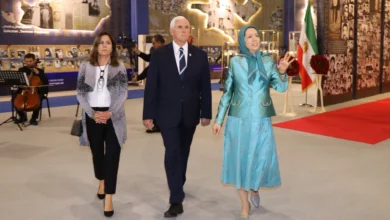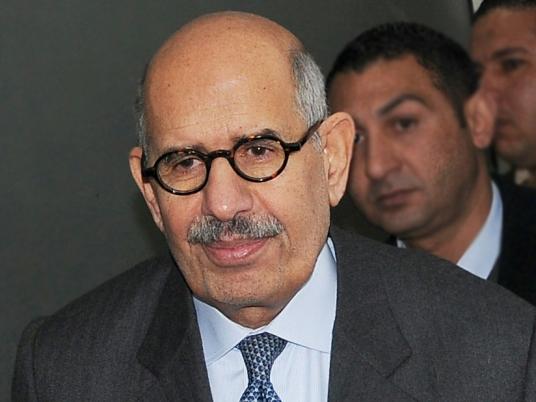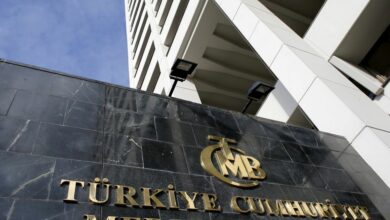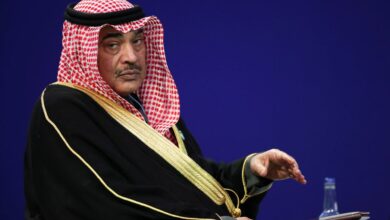For the last several years, George Ishak has remained at the vanguard of Egypt’s home-grown push for political reform. A founding member of the pro-democracy Kefaya movement and a vocal supporter of the National Association for Change (NAC) of would-be presidential candidate Mohamed ElBaradei, Ishaq sat down with Al-Masry Al-Youm to discuss politics, change and the future of Egypt.
Al-Masry Al-Youm: What do you think of Egypt’s current political situation?
George Ishak: Opposition movements and workers’ protests in front of the parliament building have provided a great impetus. The people have become able to voice their opinions. It is also undeniable that the return of Mohamed ElBaradei and his contribution to political mobilization has been a great addition, especially after he established the NAC.
Al-Masry: Some analysts have called ElBaradei an idealist who will fail to accomplish anything.
Ishak: ElBaradei possesses the desire and the courage, but he still lacks other things, such as concentrating on political action in Egypt, engaging more with people on the street, and reaching out to marginalized segments of society–namely, workers and peasants who are excluded from political life. These people constitute a major force that can be utilized in political action, and that is exactly what is going to happen in the coming period as the scope of his movement becomes vaster.
Al-Masry: Some critics say ElBaradei derives his power from abroad and accuse him of promoting a foreign agenda.
Isaaq: This is untrue. It is impossible to question his loyalty to Egypt. He cannot be promoting a foreign agenda while urging people to push for change at the same time. Moreover, reliance on foreign assistance is a losing bet, since change will ultimately come from inside the country.
Al-Masry: Where does Kefaya, the most prominent protest movement, stand in the current political situation?
Ishak: All the recent political impetus and street protests have been inspired by Kefaya, which played a leading role [in Egyptian political activism] that no one one can deny. This movement managed to eliminate the barrier of fear and encourage the people to voice their demands. It is now in retreat somewhat due to the emergence of other alternative movements, though this does not detract from its leaders.
Al-Masry: What about the role of opposition parties in political life?
Ishaq: All political parties these days are pathetic. Despite their undeniable patriotism and long histories, these parties have not respected these long histories and insisted on participating in the charade that was the Shura Council elections. What happened in these elections really touched on the dignity and reputation of these parties–and the Muslim Brotherhood [opposition movement] is no exception.
These parties also failed to come to the support of trade unions in their protest before parliament. I can confidently say that these parties are out of touch with the political scene.
Al-Masry: What must opposition movements do to restore their role?
Ishaq: They need to create their own bloc for change, through which they can begin taking action and hitting the streets. They must bolster their popular appeal by lobbying young people and laborers and try to remain as united as possible.
Al-Masry: What contribution has the NAC made to political life? And what can it do in the future?
Ishaq: It hasn’t contributed anything yet, since has not yet passed the phase of closed meetings and empty statements. If it does not change course, it will come to an end just like those who adopted similar strategies in the past. The NAC must become aware of this danger and hit the streets of Cairo and the provinces. This is more important for the time being.
Al-Masry: Recent developments have suggested a misunderstanding of sorts between ElBaradei and NAC members. Can you elaborate?
Ishaq: ElBaradei is not president of the NAC, as he made clear during its February meeting. The NAC was imposed on ElBaradei, of which he is only a member–not its leader.
Al-Masry: ‘Change’ has become an oft-repeated mantra among political opposition figures. What exactly does it mean?
Ishaq: The word suggests following a new perspective in Egypt, different to that of the ruling regime–which has pushed us to the bottom of the world and retarded state institutions. In order for change to take place, the incumbent regime must depart and give the opportunity to people with sound vision.
We are fed up with elections being rigged; young people dying as a result of illegal migration; and citizens being lynched in the streets, buried in landslides, burnt to death in trains, killed by toxic foods and poisoned blood bags, etc.
Al-Masry: You spoke about encouraging laborers and peasants to participate in political life. What then is the role of professional syndicates? Can they assist in the push for political change?
Ishaq: Syndicates are denied participation in political life, since some are under government sequestration, while others are manipulated by the ruling party. Others, meanwhile, are suffering the effects of internal rivalries.
Yet they remain a chief power base that we have to communicate with, given their ability to induce change on many levels.
Al-Masry: What part can young people play in promoting political change?
Ishaq: The youth issue is very important, but the young generation was born in the shadow of the ruling regime, and have therefore never had an opportunity to practice politics. What’s more, political establishments have kept them at arm’s length and failed to embrace them.
When we first launched Kefaya, we reached out to young people and delivered our message to them honestly and respectfully. The political powers-that-be ought to enlighten the young, encouraging them to help develop the country through peaceful means–because violence is not an appropriate response to the current situation.
Al-Masry: What would you like to tell the official opposition, ElBaradei and the regime?
Ishaq: I would invite the opposition to unite at this moment of truth, and I would ask ElBaradei for more engagement with the people–now more than ever. As or the regime, I would simply tell it to leave.
Translated from the Arabic Edition.




